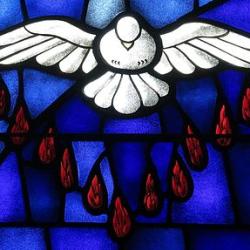In its predominant sense democracy is the rule of the majority, but here liberalism must enter. (It did not and does not always.) Majority rule must be tempered by legal assurances of the rule of minorities, and of individual men and women. And when this temperance is weak, or unenforced, or unpopular, then democracy is nothing more than populism.
— John Lukacs, from "Democracy and Populism" (excerpted in Harper's)
In November, schoolchildren trace their hands to draw turkeys while learning about how the pilgrims came to the New World seeking the freedom to worship as they saw fit.
This is an important piece of America's history and an even more important piece of America's mythology. But this textbook phrase — "the freedom to worship as they saw fit" — is imprecise. It's an umbrella description that covers some radically different impulses.
Many of those who came to America did so, at least in part, to be free of religious intolerance or oppression. It wasn't only the pious Puritan pilgrims who sought a haven for freedom of conscience. The New World was a magnet for Quakers, Baptists, Anabaptists, nonconformists and freethinkers of every sort.
But from the founding of the early colonies right on up through the present, this desire for freedom — the freedom to worship as they saw fit — has manifested itself in two competing impulses. The first impulse is liberal, in the very best sense. The second is decidedly illiberal.
The liberal impulse won the day, at least officially, and was enshrined as the law of the land. It is written into, and shapes, that great liberal document, the U.S. Constitution. It holds that no one — no king, or governor, or government — has the right to compel others to worship in a particular way.
By embracing this liberal principle, the early Americans sought to protect themselves from ever again experiencing the religious intolerance they had fled in the Old World.
But the second impulse also promises such protection. The other way to avoid experiencing such intolerance is to establish your own majority and to ensure that the ruling powers enforce your own particular variety of religious practice. This is the illiberal approach and it does not care a whit for the rights of minorities or dissenters. It recognizes freedom of conscience — for me and not for thee.
It is true, as the children learn at Thanksgiving, that the Plymouth colony was founded so that the pilgrims could have the FtWaTSF. But that was also the reason for the founding of the colony of Rhode Island, and Rhode Island was founded by religious dissenters fleeing intolerance not in Olde England, but in New England, where the pilgrims had established their own form of intolerant majority rule.
As I said, the liberals won the official argument. The Penns and Paines, Jeffersons and Madisons succeeded in making America an officially liberal nation with a Bill of Rights protecting minorities and individuals from the unrestrained tyranny of the majority.
But the competing, illiberal impulse never went away. It may be against the law — against even the idea of the law — but it has lived on, and thrived, in America.
The liberal rule of law that defends individuals against the tyranny of the majority is today "weak, unenforced and unpopular." The story in the previous post is but one example of this. Combine that popular disdain for liberalism with the current wave of antipathy towards the judiciary — the last nonviolent line of defense for the rule of law — and the signs don't point to anything pleasant.
Somebody tell me that I worry too much.












